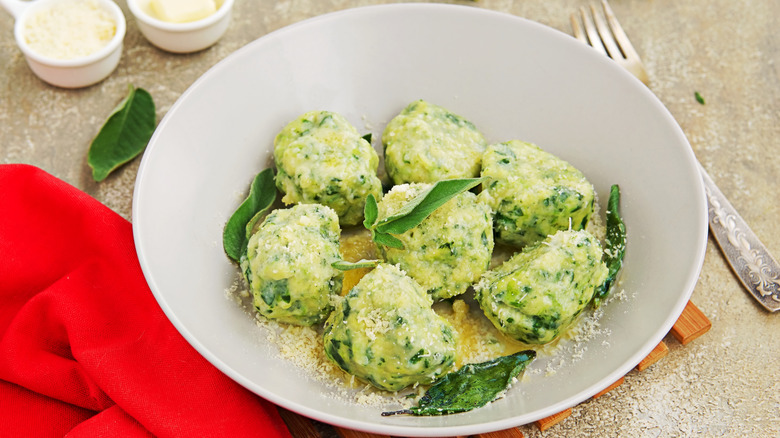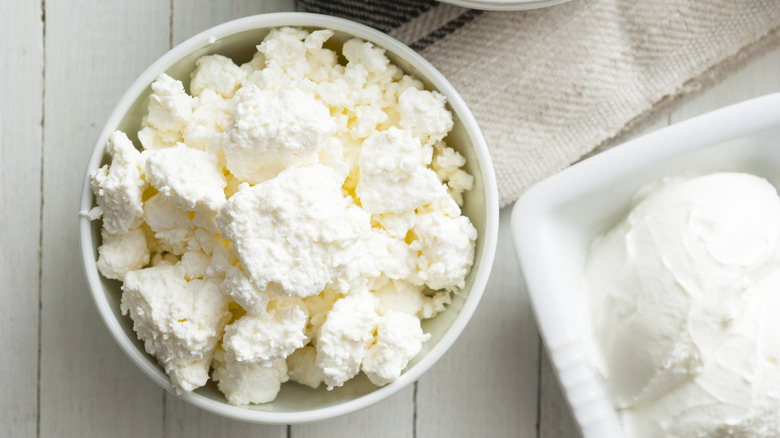Blame This Ingredient If Your Gnudi Falls Apart While Cooking
In the realm of pasta, gnudi warrants its own category — and is not to be confused with gnocchi. Sure, gnocchi is popular for a reason. The potato-based pasta can complement sweet potatoes and pesto alike. But gnudi are equally delicious and worthwhile. This pasta variety is perfect for whenever you're craving a carb with a little more texture.
While gnudi and gnocchi certainly aren't the same, the appearance and name of each shape would beg to differ. The Guardian distinguishes these like-sounding kinds of pasta by their fillings. Gnudi are often known as "ricotta gnocchi," whereas gnocchi is made with a starch base. The signature difference between the two truly comes down to cheese versus potatoes. However, making gnudi correctly isn't exactly an easy feat.
When made methodically, gnudi are a light and fluffy dish flavored with ricotta. Parts of the cooking process are straightforward enough. For instance, the ingredients are simple, typically calling for ricotta, parmesan, seasonings, butter, and flour. Yet herein lies a risk that could jeopardize your whole dish. Perfecting gnudi ultimately comes down to the consistency of its star ingredient — ricotta. You have to choose your cheese carefully or your gnudi will fall apart.
Watery ricotta can break your gnudi in the most literal of ways
As gnudi's primary filling, ricotta can make or break the pasta. Unfortunately, if your ricotta is too thin, it will break the dish by breaking apart your gnudi. According to The Kitchn, ricotta that isn't thick enough will cause the gnudi to lose shape and fall apart as they boil. All that hard work will go, truly, down the drain.
So, to have success in all of your gnudi-making adventures, opt for thick, whole-milk ricotta. You'll likely find the best ricotta at an Italian market. The Kitchn also recommends Galbani Double Cream ricotta, which is available at Publix. Trader Joe's whole-milk ricotta works equally well.
For extra precaution, you can also drain your ricotta, which is technically a cheese byproduct rather than cheese itself. BBC Good Food recommends draining ricotta for about four hours before forming your gnudi balls. You also shouldn't boil your gnudi right away. Rather, you'll want those formed balls to chill for up to 24 hours, so skin forms around the gnudi. This exercise in patience will create yet another barrier between your gnudi and the water. It's important to pull out all of the stops so your ricotta stays together, and your gnudi makes it to your plate.

